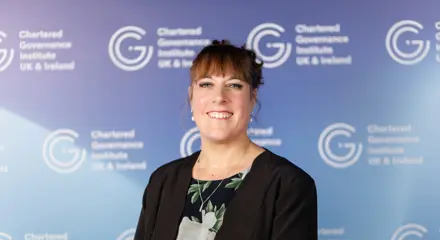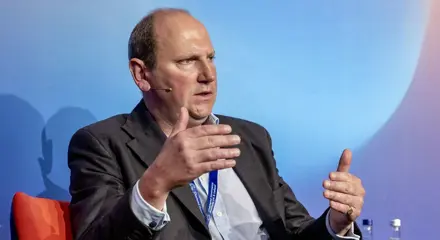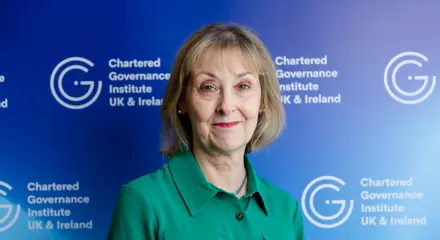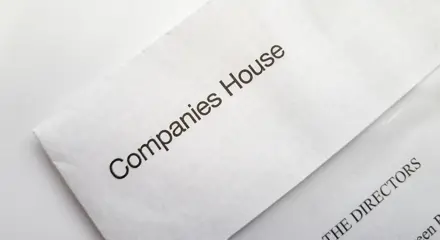
Blog
Comment: "Ethical leadership needs company secretaries who do more than manage process"
Peter Ho FCG urges company secretaries to step up as strategic partners in ethical leadership, helping boards move beyond process to build integrity, challenge blind spots, and prepare for complex governance challenges.

Blog
From the CEO: It is an immense privilege to begin my role as your new Chief Executive
I join at a moment of both challenge and opportunity for our profession. That is why our membership survey is so important. It gives us the evidence to shape strategy, measure impact, and decide what we should start, stop or strengthen.

Blog
Comment: "My role in advancing Agentic AI initiatives at Citi"
In this comment piece, Harmeen Birk, former AI Strategy Lead at Citi, explores the transformative impact of agentic AI in financial services. With Citi now piloting the technology across 5,000 employees, Birk reflects on how autonomous systems are reshaping operational capacity, governance, and risk frameworks.


Blog
Comment: "Black Excellence in Governance changes everything"
In this powerful reflection, Damilare Ojo shares the vision behind the inaugural Black Excellence in Governance Awards UK—a landmark initiative celebrating the achievements of Black professionals whose leadership is reshaping boardrooms across the country

Blog
Workplace relationships: time to review your policies?
Recent high-profile resignations have reignited debate on workplace relationships and governance. With new UK legal duties on harassment prevention and growing scrutiny of conflicts of interest, now is the time to review policies, disclosure processes and cultural safeguards

Blog
Likes can fall fast. Is your social media governance ready?
Social media offers organisations powerful opportunities for engagement, but also introduces unique risks that require robust governance. This article explores how governance professionals can add value by embedding clear structures, rules, and oversight into digital channels.



Blog
Governance failures at Prince Harry’s Charity
Prince Harry, co-founder of Sentebale, was drawn into a public governance dispute at the charity earlier this year.
The Charity Commission has now concluded its investigation, finding mismanagement but issuing no formal sanctions. The case highlights the importance of clear governance structures and professional oversight in safeguarding a charity’s mission and reputation.

Blog
Comment: What Trump’s AI plan means for the future of governance
The Trump administration's recently unveiled AI Action Plan represents nothing short of a complete philosophical reversal from the previous administration's regulatory framework, and the implications for global AI governance are profound.

